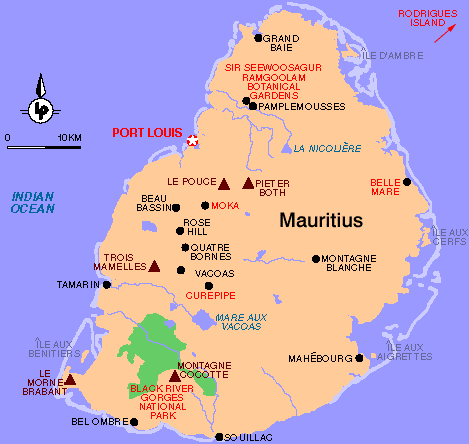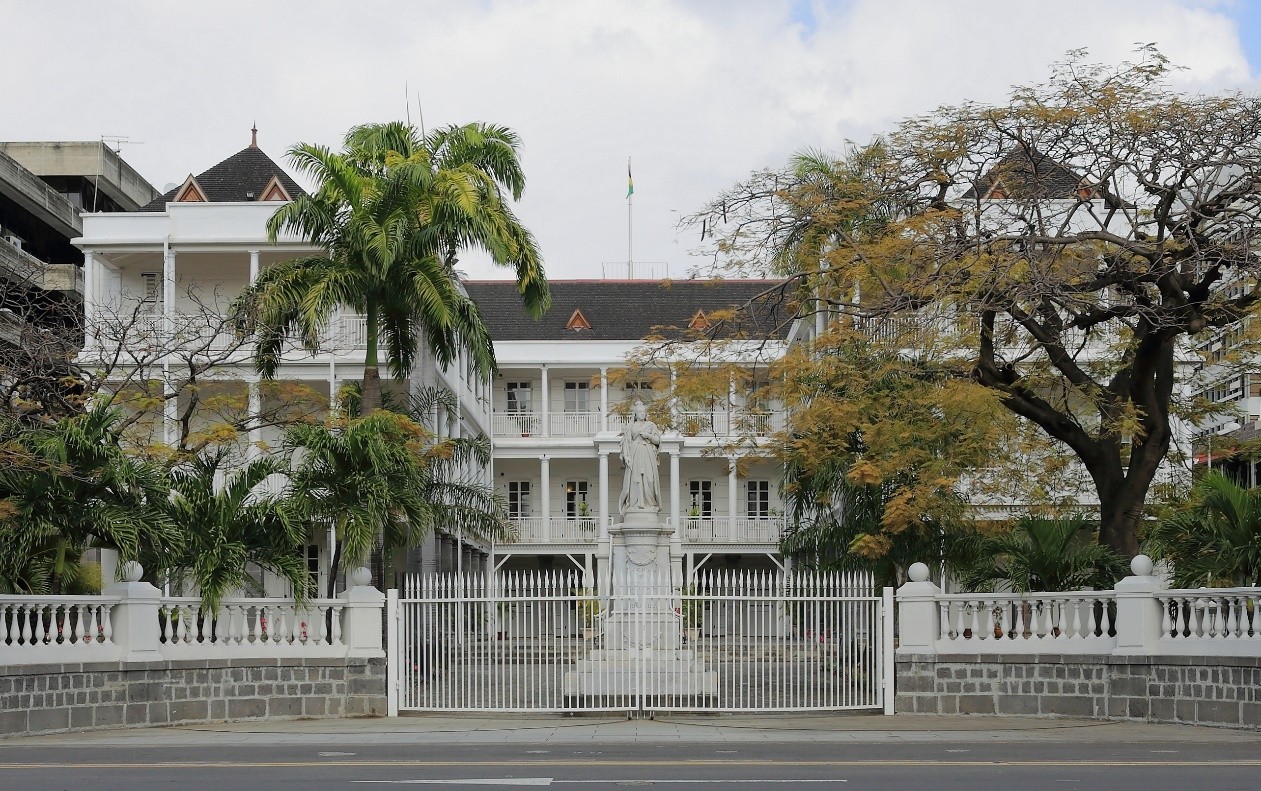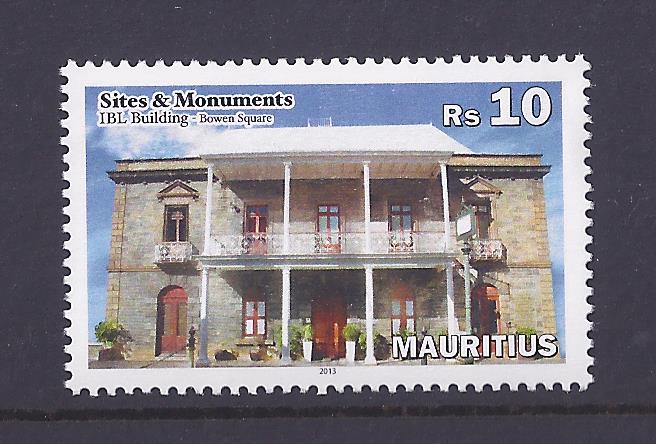
A Mauritius Trust has been legislated with several laws since 1989 when the Trusts Act and Trust Companies Act were enacted. The Offshore Trusts Act 1992 replaced the two 1989 laws. Then in 2001, the Trusts Act (“Act”) replaced the 1992 law.
Background
Mauritius was a former British Colony which gained its independence from the United Kingdom in 1968. It officially became a republic in 1992. Its political system is a unitary parliamentary republic with an elected national assembly and a prime minister and a president.
Mauritius is an island country located on the Indian Ocean near the African coast. English is one of its official languages.
Offshore Trust Benefits
A Mauritius Trust enjoys these benefits:
• Total Foreign Ownership: Non-resident trusts are created by foreigners to benefit foreign beneficiaries.
• Tax Free: Non-resident trusts are not taxed in any manner. However, United States taxpayers must report all global income like everyone residing in countries taxing global income.
• Privacy: Trusts do not register with the government allowing total privacy for the settlor, beneficiaries, and assets.
• Settlor Control: The settlor’s trust deed dictates how trust operate leaving great discretion for the settlor.
• Asset Protection: All assets are owned by the trustee. Their description and location are not in any public records. Mauritius will not recognize other countries laws regarding succession and rights of heirs or limits on their citizens to dispose of properties during their lifetime.
• Estate Planning: With 99 year lifespan for most trusts or perpetual life for purpose trusts wealthy families may establish successful estate plans.
• English: As a former British Colony, Mauritius has English as one of its official languages.

Mauritius Trust Name
Trusts cannot have the same name or one resembling any other legal entities names in Mauritius.
A trust’s name must end using the word “Trust”.
Types of Trusts
Discretionary Trusts – This allows the trustees the power to add and remove beneficiaries, distribute the income and assets to the beneficiaries at various times and amounts. Discretionary trusts are typically formed when the trust deeds does not provide for the above-mentioned decisions. The settlor can provide a letter of wishes to guide the trustees regarding administration of the trust and management of the assets.
Purpose Trusts – These types of trusts are established with a specific purpose rather than the general benefits for beneficiaries. Purpose trusts must clearly specify how the purposes will be fulfilled. The trust deed must specify how surplus assets will be distributed when the trust terminates. An enforcer must be appointed for a purpose trust to assure the trustees fulfill the purposes. A trustee cannot be appointed as an enforcer. Enforcers cannot be involved with any type of conflicts of interests or obtain personal profits from the trust. However, reasonable compensation for services and reimbursement of expenses related to the duties are allowed.
Formation
The Act prescribes the only way to form a trust is in writing declaring the trust’s purposes, identifying the beneficiaries, protector, and a trustee specifying the powers and duties of the trustee.
Trust Deed
The trust deed provides all of the required details regarding the parties, their rights and responsibilities, the assets, distribution of income and assets and other important terms and conditions.
Trust deeds normally include one of these forms:
• Settlement – Like a contract where the trustee agrees to accept title to properties transferred by the settlor on the condition of specific purposes, powers, duties, and benefits to the beneficiaries. The manner in which the assets may be invested, managed, and administered are normally included. This contract is signed by the trustee and the settlor; or
• Declaration – This is a document prepared and signed solely by the trustee who declares and records receipt of the settlor’s specific properties to be held by the trustee under the terms set forth in the declaration.
Jurisdiction
The settlor has options of which jurisdiction to choose whose laws will be followed by the trust. The two ways that proper jurisdiction will be established is either by:
• Jurisdiction selected by the settlor; or
• Assumed by the wording of the trust deed.

Duration
Most trusts lifetime is limited by the Rule Against Perpetuity where Mauritius sets at a maximum life of 99 years from the date of formation. However, an exception exists for a purpose trust which can have perpetual existence.
The trust deed should specify the duration. If not, then the 99 years duration applies.
Settlor
The Act requires a minimum age of 18 years with the legal capacity to enter into contracts in order to become a settlor who creates a trust. Besides, natural persons of legal age and competent mind, any legal entity (corporation, company, etc.) can become a settlor and create a trust.
Settlors can be local residents or non-residents from any country.
The only limits regarding settlors transferring ownership of assets to trusts is properties located in Mauritius cannot be included in a trust. This includes accounts in local banks or funds in Mauritian Rupees.
While the Act permits settlors to be a beneficiary, trustee, or an enforcer (protector) of his or her trust, the settlor is prohibited from being the sole beneficiary.
Beneficiaries
Any natural person or legal entity may be a beneficiary in a trust.
Beneficiaries must be identifiable either by name or by reference to either a:
• Specific identifiable class; or
• having a relationship with a natural person either currently or in the future as specified in the trust documents. This would include future spouses and children.
Trustee
The settlor appoint the trustee in the trust deed. Trustees can be adult natural persons with legal capacity to execute and enter into contracts. Trustees are prohibited from having any conflict of interests regarding the assets or parties to the trust. In addition, trustees cannot derive beneficial interests from the trust.
A corporation can also be appointed as a trustee provided the laws allow it. A corporation must first pass a resolution by its board of directors or another governing body accepting the appointment as a trustee.
A maximum of four trustees is permitted where at least one is a “qualified” trustee as defined by the Act such as a local individual authorized by the Financial Services Commission (FSA) or a local management company licensed to provide trustee services. Full disclosure by the trustees to the other trustees if any instance arises where the potential for a conflict of interest may arise between the trust and other trusts where the trustee is also a trustee.
Trustees are required to act as fiduciaries acting honestly and in good faith with prudence and care in the best interests of the trust. They must follow the terms of the trust deed. Trustees are prohibited from self-dealing with trust assets or otherwise gaining profits from the trust.
Trustees are also required to maintain and enhance the value of trust assets. In addition, trustees must prepare and maintain accurate accounting procedures and records of the trust and maintain separation of one trust’s properties from his or her own and other trusts.

Managing Trustee
The trust deed may provide for the trust to be managed by a managing trustee. The managing trustee may have full power to make decisions on behalf of the trust in her or her sole discretion.
Custodian Trustee
The Act allows a trust deed to appoint a corporation, partnership, or a company to acts as a custodian trustee to hold trust properties and make investments and dispose of trust funds under the direction of the managing trustee.
The custodian trustee cannot be held liable for acts or defaults committed by the managing trustee unless acts to be performed upon the request of the managing trustee are or should have been reasonably known to be in contrary to the trust deed, the Act or sound business practices.
Letter of Wishes
Settlors and beneficiaries can give the trustees a letter of wishes pertaining to the exercise of functions under the trust deed. Trustees are not required to follow the letter of wishes.
Protectors
The Act allows for the appointment of a protector to provide advice and supervise the trustees. The protector owes a fiduciary duty towards the beneficiaries and has powers to:
• Appoint new or remove trustees;
• Determine the jurisdiction of the trust;
• Make administrative changes to the trust; and
• Withhold any prior consent by the trustees regarding specific actions.
Protectors must be adults of sound mind and can be the settlor, a beneficiary, a trustee, a corporation, company, a partnership, or a non-corporate group of natural persons. If more than one protector is appointed a majority consent is required for any actions, unless the trust deed provides otherwise.
Foreign Laws
Non-resident settlors transferring title to properties locate anywhere can feel secure that the Act prevents challenges seeking to set aside a transfer based upon a foreign country’s laws regarding inheritance or succession rights.
In addition, the Act also prevents such challenges based on another country’s laws restricting a person’s right to dispose of his or her properties during their lifetimes in order to preserve the properties for post-death distributions. Such laws are known as “forced heirship” and will not be recognized by the courts in Mauritius.
Taxes
Domestic resident trusts pay income taxes on their profits. However, non-resident trusts where the settlor is a foreigner and all the beneficiaries are non-residents or the purpose for the trust is conducted totally outside of Mauritius, will be completely tax exempt.
Distributions made to the beneficiaries will be treated as dividends to non-residents which are also exempt from income taxes.
Prior to the end of each tax year, the trust must file a Declaration of Non-Residency to the Director General of the Tax Authority to maintain its tax exempt status.
Note: U.S. taxpayers must reveal all income to their tax agencies like everyone residing in a country taxing world income.
Public Records
Since trusts are not required to register with the government, there are no public records of any kind revealing the settlor’s and beneficiaries’ names or the type and location of trust assets.
Conclusion
A Mauritius Trust has these benefits: total foreign ownership, privacy, no taxes, settlor control, asset protection, estate planning, and English as one of its official languages.


